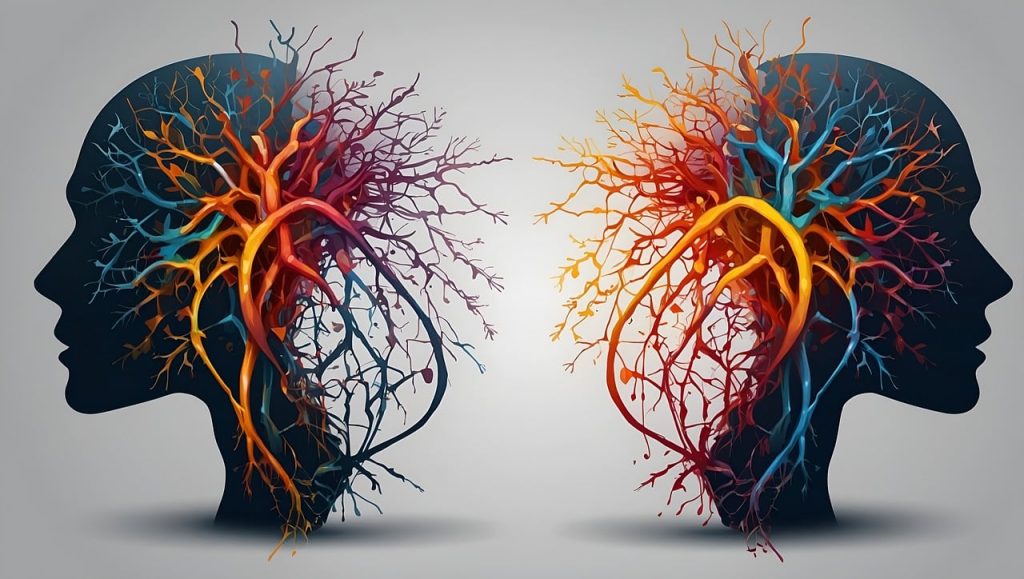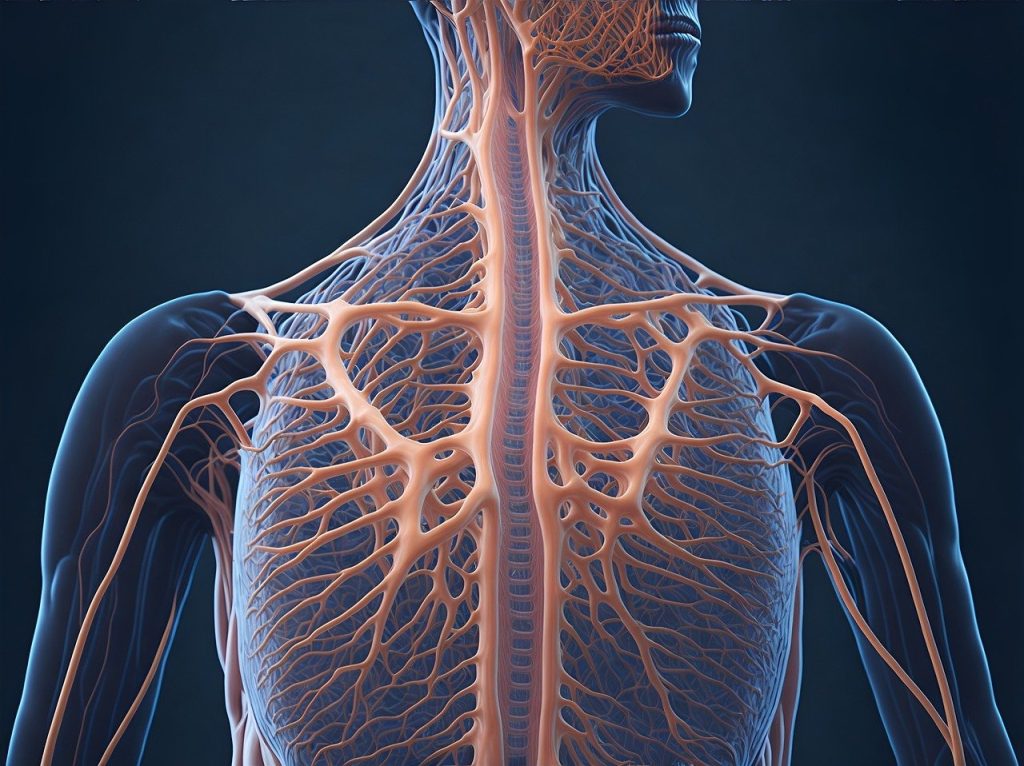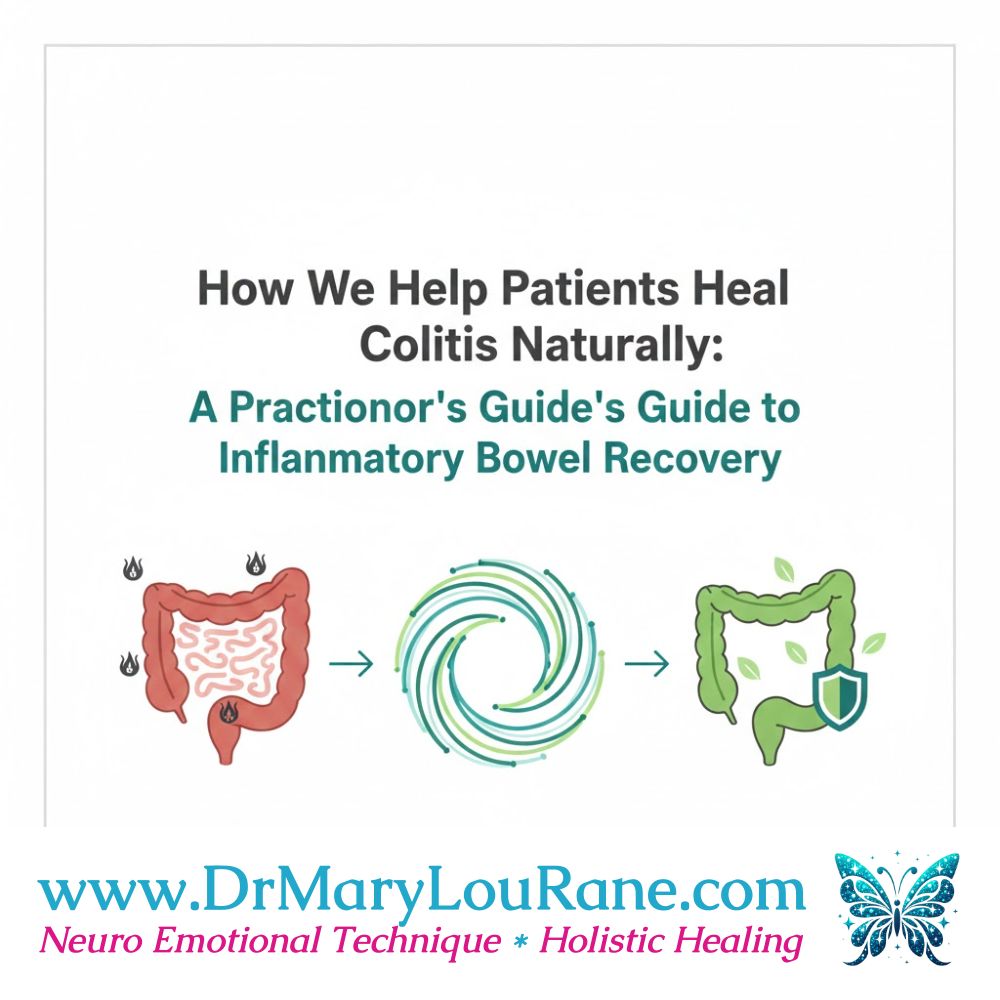Have you ever experienced an unexpected wave of dizziness, brain fog, digestive troubles, or even a fainting spell? You’re not alone. Many individuals are unknowingly affected by vagus nerve dysfunction, a condition that can significantly disrupt one’s quality of life.
With my clients, I test the left and right vagus for auricular, ventral, dorsal and sensory and determine if the problem is chemistry, emotional or structural. Often it is all 3. We then can find what nutritional supplements will support that part of the vagus nerve to correct an imbalance and do a structural adjustment to free it up and lastly do NET to flush out the emotional trauma and/or beliefs that are blocking it. NET is very effective in allowing the vagus/parasympathetic nervous system to function properly and put the brakes on the sympathetic nervous system which often is heightened, causing anxiety and other emotional stress.
Introducing the Vagus Nerve
The vagus nerve, a vital component of our parasympathetic nervous system, plays a critical role in regulating heart rate, gastrointestinal functions, and emotional well-being. When this nerve malfunctions, it can lead to a cascade of symptoms that affect various bodily systems. Understanding the nuances of vagus nerve dysfunction is essential for those seeking answers and relief.
In this article, we will explore the anatomy of the vagus nerve, the wide range of conditions linked to its dysfunction, and the variety of symptoms it may manifest. Additionally, we will delve into diagnostic methods and treatment options available to improve vagal tone and enhance overall health. Together, let’s uncover the vital connections that contribute to your well-being.
Anatomy of the Vagus Nerve
The vagus nerve, a vital component of the human body, plays a significant role in maintaining our physical well-being. Central to the parasympathetic nervous system, this expansive cranial nerve originates in the medulla oblongata of the brain stem and reaches various organs such as the heart, lungs, and digestive tract. Remarkably, the vagus nerve constitutes around 75% of all parasympathetic nerve fibers, underlining its importance in numerous body functions.
This nerve isn’t just a singular pathway. Instead, it is a complex network involved in a myriad of tasks, from lowering heart rates and controlling blood pressure to managing digestion by regulating stomach acidity and gut motility. Proper vagus nerve function ensures seamless communication between the brain and vital organs.
When damage occurs to the vagus nerve, the repercussions can affect multiple systems, causing symptoms such as heart rate variability, abdominal pain, and issues with saliva production. Understanding its anatomy provides insight into the potential impact of its dysfunction on overall health.
Here’s a brief overview of the vagus nerve’s anatomy:
- Origin: Medulla oblongata in the brain stem
- Path: Extends through the neck beside the common carotid artery, branching into the chest and abdomen
- Key Functions:
-
- Decreases heart rates
- Manages blood pressure
- Controls smooth muscles and glands in the gastrointestinal tract
- Influences saliva production
- Aids in vocalization through laryngeal nerves
- Facilitates deep breathing and calmness by affecting heart rate variability (vagal tone)
Caring for our vagus nerve is vital for overall wellness, affecting everything from digestion to mental health.
Role of the Vagus Nerve in the Parasympathetic Nervous System
The vagus nerve is like a compassionate caretaker, overseeing a myriad of the body’s restorative processes. As a critical element of the parasympathetic nervous system, it delicately balances our bodies’ “rest and digest” responses, ensuring a peaceful counteraction to the stress-inducing “fight or flight” reactions managed by the sympathetic nervous system.
This nerve is not just any cranial nerve; it is the longest and most sophisticated, bridging the brain with the heart and digestive system through motor and sensory pathways. With a remarkable 75% of parasympathetic nerve fibers, the vagus nerve orchestrates a symphony of vital body functions, from regulating heart rates and blood pressure to managing saliva production and immune responses.
Its proper functioning brings tranquility and eases stress. When the vagus nerve is in harmony, we enjoy a sense of serene balance. But if dysfunction arises, it can unsettle this equilibrium, leading to heart disease or mental health struggles like anxiety and depression.
Essential for well-being, the vagus nerve’s impact on how our body operates is profound. It underscores the intricate and delicate nature of the human body, reminding us of the importance of nurturing both our physical and mental health through tools like deep breathing to maintain optimal vagal tone.
|
Function |
Role of Vagus Nerve |
|---|---|
|
Heart Rate |
Regulates heart rates and heart rate variability |
|
Digestion |
Connects brain to gastrointestinal tract, influences acid reflux |
|
Blood Pressure |
Helps control blood pressure |
|
Mental Health |
Affects mental health conditions, stress response |
|
Immunity |
Part of the immune response regulation |
Conditions Associated with Vagus Nerve Dysfunction
The vagus nerve, the compassionate messenger of the body, can sometimes deliver distressing news when dysfunction sets in. Impaired vagal tone or damage to this crucial nerve can unfold into a cascade of symptoms that resonate throughout the body with discomfort and unease. Individuals might experience a range of symptoms, from nausea and vomiting to abdominal pain, reflecting the nerve’s widespread influence on the digestive system. Difficulty swallowing or speaking also signifies problems with the vagus nerves, as they directly engage with the mechanisms of these functions.
Beyond these immediate symptoms, the ripple effects of vagus nerve dysfunction can extend to more chronic conditions, translating physiological distress into emotional disturbances like depression and anxiety. The relentless nature of gastrointestinal issues such as acid reflux and the debilitating slow gastric emptying of gastroparesis are often associated with vagus nerve dysfunction. Moreover, cardiovascular health is not immune to its impact; a poorly functioning vagus nerve can induce a slow heart rate (bradycardia), and blood pressure irregularities, disrupting the delicate equilibrium of our circulatory system.
In severe scenarios, the vagus nerve’s mismanagement can even provoke seizures and heart arrhythmias, potentially life-altering conditions that compound the individual’s burden and may lead to the employment of vagus nerve stimulators in therapeutic regimes. As a linchpin in the operations of multiple bodily functions, particularly within the parasympathetic nervous system, a dysfunctional vagus nerve exemplifies the interconnectivity and frailty inherent in our human form.
|
Condition |
Symptoms |
Possible Causes |
|---|---|---|
|
Gastroparesis |
Nausea, vomiting, abdominal pain, early satiety |
Diabetes, viral infections, surgery |
|
Vasovagal Syncope |
Fainting, blurry vision, sweating |
Anxiety, pain, heat exposure |
|
Dysautonomia |
Chronic pain, dizziness, heartburn |
Genetic factors, autoimmune conditions, long COVID |
Gastroparesis
Gastroparesis embodies the profound inconvenience a dysfunctional vagus nerve can inflict upon the digestive system. Characterized by the stomach’s inability to empty itself efficiently, this condition converges into a nexus of distress, featuring nausea, vomiting of undigested food, and an early sense of fullness that disrupts the simple joy of a meal. Often resulting from damage to the vagus nerve itself, gastroparesis is a complex condition associated with varied etiologies such as diabetes, some viral infections, or even following abdominal surgery that might inadvertently affect the nerve.
Treatment avenues are as variegated as the symptoms, often starting with dietary adjustments and medications aimed at enhancing gastric motility. For those grappling with more resistant forms of gastroparesis, surgical interventions may be the recourse. Pioneering studies offering a glimmer of hope suggest that vagal nerve stimulation might alleviate symptoms for patients, particularly when the cause remains elusive, underscoring the potential of tapping into the nerve’s inherent restorative capability.
Vasovagal Syncope
Vasovagal syncope is a sudden, transient episode where the strong but misplaced intentions of the vagus nerve result in an unexpected fainting spell. This condition arises when the nerve overreacts to certain stimuli – such as intense emotion, the claustrophobia of hunger, the sharpness of pain, or oppressive heat – leading to a pronounced drop in heart rate and blood pressure. Those afflicted might experience a prelude of symptoms like fatigue, blurry vision, or sweating, which crescendo into a loss of consciousness.
The heart, in these moments stilled by the vagus nerve’s overzealous stimulation of particular cardiac muscles, leaves individuals suddenly vulnerable. Understanding the triggers, such as stress or pain, is key in managing vasovagal syncope. With remedy often found in pre-emption and avoidance of known triggers, it’s crucial for individuals who experience fainting to consult with healthcare professionals to exclude more sinister underpinnings for their symptoms.
Dysautonomia
At the intersection of vagus nerve dysfunction and a constellation of disparate symptoms lies Dysautonomia. Here, the vagus nerve’s role in moderating functions from heart rate to breathing to digestion is disrupted, manifesting in a spectrum of symptoms like chronic pain, fatigue, dizziness, and even emotional states like anxiety. Activity that ordinarily passes unnoticed—a turn of the head, a quick stand from sitting—can, in Dysautonomia, provoke distressing physical reactions, such as flushing or visual disturbances, indicative of the vagus nerve’s perturbed state.
In addition to these episymptoms, dysautonomia may reveal itself in alterations in blood pressure upon standing, miscalibrated thermal regulation, dilated pupils, or a less responsive gag reflex. The vagus nerve’s impedance may also reveal its troubling role in post-viral states, such as those following COVID-19, offering a potential link to the array of neurological quirks seen in long COVID and hinting at a role for inflammation in these enduring maladies.
Symptoms of Vagus Nerve Dysfunction
Navigating the multifaceted symptoms of vagus nerve dysfunction can be bewildering and, at times, overwhelming. Those suffering from this condition may encounter an expansive spectrum of signals from their body that something isn’t functioning as it should. Chronic pain, fatigue, and dizziness can manifest, each symptomatic of deeper issues within the nerves that weave throughout the body. Patients might also experience emotional lability, which signifies how deeply interconnected our emotional well-being is with our physical health.
Gastrointestinal disturbances are common, and the vagus nerve’s role in this cannot be understated. Heartburn, bloating, diarrhea, and the more severe gastroparesis highlight its deep involvement in digestive processes. When it comes to the cardiovascular system, vagus nerve dysfunction can reveal its influence through palpitations, tachycardia, or a frightful feeling of impaired thermoregulation.
One unique marker of this dysfunction is the emergence of episymptoms. These are unexpected and distressing symptoms that are triggered by simple head movements or facial activities – experiences that wouldn’t typically generate discomfort in a person with a fully functional vagus nerve. To add another layer, changes in mental state such as stress amplification or bouts of lightheadedness often accompany the physical symptoms, painting a picture of just how intricate and essential the vagus nerve is to maintaining both mental and physical equilibrium.
Neck Pain
The onset of neck pain may very well be a signal that something deeper is amiss with the vagus nerve. When the atlas vertebra, located at the top of the spinal column, becomes misaligned, this can throw the delicate balance of your head’s weight distribution into disarray. The tension this creates not only incites neck pain but can extend its grasp to cause shoulder pain and headaches.
If neglected, these issues can amplify. The cervical spine’s structural integrity may deteriorate over time due to modern-day factors like sustained forward head postures. As this breakdown progresses, the risk of nerve damage compounds, potentially leading to more profound and persistent pain.
It is crucial to recognize that vagus nerve irritation often coincides with neck misalignments. This nerve, winding through the neck, is susceptible to any such disturbance, and its irritation can amplify pain sensations within the entire neck region.
Gastrointestinal Disturbances
The vagus nerve’s reach affects not just the heart, but also the complex network of the gastrointestinal tract. Dysfunction within this nerve can provoke gastroparesis—a stubborn condition in which the stomach is unable to empty itself effectively. The distress caused by this can manifest vividly as nausea, abdominal pain, and vomiting, which can severely impact a person’s quality of life.
Utilizing diagnostic methods such as upper gastrointestinal series or gastric scintigraphy can provide a glimpse into how severely the vagus nerve’s function has been compromised, revealing delayed gastric emptying or the retention of gastric content. Other gastrointestinal upsets linked to the vagus nerve might include acid reflux, changes in appetite, constipation, or unexplained weight fluctuations.
It’s clear that vagus nerve disorders have profound implications for those dealing with them. Contributing factors like diabetes, past viral infections, abdominal surgeries, and inflammatory conditions can lead to a slew of disruptions, including changes in gastric pH and serum gastrin concentrations—both markers that can elucidate the vagus nerve’s perturbation.
Cardiovascular Irregularities
Within the web of vagus nerve fibers, those extending to the heart and blood vessels hold a significant impact on cardiovascular function. When these fibers are damaged, the consequences can surface as a suite of symptoms: altered heart rate and blood pressure, variations in the strength of the heart’s contractions, and a disconcerting inconsistency in cardiovascular performance.
The symptoms rooted in vagus nerve injury might seem to blur together, as they can represent either end of the spectrum—bradycardia (an unsettlingly slow heart rate) or tachycardia (an alarmingly fast one). Moreover, individuals may find themselves grappling with fainting spells due to the unpredictable nature of their heart rate and blood pressure regulation.
Overactivity in the vagus nerve can precipitate bradycardia, whereas its underactivity can induce tachycardia, underscoring the delicate balance it helps to maintain. Particularly distressing is vasovagal syncope—when overactivation of the vagus nerve causes a sudden and dramatic drop in heart rate, often accompanied by fatigue and blurred vision—a stark reminder of this nerve’s pivotal role in our bodily functions.
Underlying Causes of Vagus Nerve Dysfunction
Vagus nerve dysfunction can be disruptive to everyday life, but understanding its underlying causes offers a path to potential relief and healing. Previous infections or inflammation can substantially impact the nerve’s ability to regulate a vast array of body functions properly. Physical and mental stress, too, contribute significantly, potentially leading to digestive upsets and mood disruptions that affect one’s quality of life. Moreover, certain medical conditions, including diabetes, viral infections, abdominal surgeries, and scleroderma, have been linked with vagus nerve disorders such as gastroparesis, which impedes the normal movement of the stomach muscles.
Triggers like extreme heat, standing for extended periods, or dehydration are also known to precipitate vasovagal syncope, where one may experience fainting or dizziness. In addition, birth trauma, including prolonged labor or the use of forceps and other delivery instruments, can contribute to vagus nerve dysfunction that might manifest later in life. It is vital for individuals dealing with such symptoms to be aware of these triggers and manage their condition proactively.
Emotional Stress
The interplay between emotional stress and the vagus nerve is intricate and profound. Chronic stress can lead to a cycle of distress – exacerbating anxiety and depression, which in turn can aggravate the dysfunction of the vagus nerve. This nerve, sensitive to stress, can become overstimulated, leading to physical symptoms such as abdominal pain, nausea, dizziness, or even fainting spells. Therefore, managing stress is essential for maintaining a healthy vagus nerve, and in turn, overall health, as chronic stress can predispose the body to a multitude of issues.
Stress-reducing activities such as meditation, deep breathing exercises, or gentle yoga can strengthen vagal tone and support mental health. By adopting these practices, one can counteract the negative effects of stress on the vagus nerve and promote a sense of tranquility, even in the face of life’s challenges.
Anatomical Issues
The vagus nerve, or the tenth cranial nerve, is notably the longest of the cranial nerves, beginning in the brain stem and extending through the body to reach various organs and tissues. With nerve fibers like cordlike projections stemming from neurons, it governs the functions of glands and smooth muscles within the internal organs. It’s through these fibers that the brain communicates with the heart, digestive system, and other key regions. Thus, the vagus nerve is central to the parasympathetic nervous system, managing the involuntary body functions such as digestion, heart rate, and immune responses.
When these nerve fibers are compromised due to an injury, possibly during surgical procedures, it can lead to severe complications, including dysphagia or dysphonia, which are difficulties in swallowing and speaking respectively.
Cervical Spine Injuries
Shielded in the carotid sheath and positioned strategically between the internal jugular vein and the common carotid artery, the vagus nerve’s risk of injury is generally minimized, notably during anterior cervical procedures. However, complications can still arise, particularly concerning injuries to the recurrent laryngeal nerve (RLN), a branch of the vagus nerve. Injuries are more often related to entrapment from surgical instruments rather than damage to the vagus nerve itself. This underscores the necessity for meticulous dissection techniques to prevent harm to the intricate network of nerves during surgery.
Furthermore, cervical spine injuries can indirectly impact vagal nerve function due to the nerve’s role in transmitting signals between the brain stem and various body organs. Understanding the delicate relationship of the vagus nerve with the surrounding anatomical structures is crucial for minimizing complications and preserving the nervous system’s integrity during and after surgery.
Diagnostic Methods for Assessing Vagus Nerve Health
When considering the health of the vagus nerve – a pivotal element in maintaining a balance across many body functions – compassionate and precise diagnostics are key. The vagus nerve is a bi-directional conduit of electrical impulses, relaying messages between the brain and the gastrointestinal tract, heart, and other crucial organs. Identifying any disruptions in its operations is central to addressing concerns around heart rates, digestion, and even mental health.
Clinical Evaluations
Clinical evaluations for vagus nerve dysfunction delve into the heart of the matter – the autonomic nervous system. Elevated resting heart rates, higher than 60 beats per minute, might point towards an underactive parasympathetic nervous system, a red flag for potential dysfunction of the vagus nerve. Comprehensive lab tests join the diagnostic toolkit, searching for nutrient deficiencies or lurking infections that can compromise neurological integrity. Meanwhile, specialized HRV tests enable a deep dive into the nuances of heart rate variability, casting light on the vagal tone and guiding clinicians towards more individualized care plans.
Imaging Techniques
The intricate anatomy of the cranial nerves, including the vagus nerve, demands high-definition imaging for accurate assessment. High-resolution MRIs represent the pinnacle of such technology, offering a window into potential compressions or the rare vagus nerve tumor. However, smaller structures may escape the resolution of routine neck scans, necessitating detailed CT imaging in pursuit of diagnostic clarity. Whether uncovering compression by neighboring structures or detecting delays in gastric movement, imaging stands as a cornerstone in demystifying vagus nerve health.
Functional Assessments
Functional assessments aim to illuminate the present capacity of the vagus nerve to manage its duties. Heart Rate Variability (HRV), a rapid measure, offers immediate insights into the vagal nerve function, helping to gauge the extent of an imbalance. Paired with autonomic response testing, these evaluations help neurologists and medical professionals piece together an individual’s autonomic profile. In doing so, they help to eschew one-size-fits-all approaches, paving the way toward remedies that might avoid the use of medications or invasive procedures, ultimately prioritizing the body’s inherent strengths and emphasizing recovery through a holistic lens.
Treatment Options for Vagus Nerve Dysfunction
Living with vagus nerve dysfunction can be a challenging journey, one that affects many facets of well-being. Not only does it impact physical health—contributing to symptoms like slow heart rate, acid reflux, and abdominal pain—but it also takes a toll on mental health, as it can lead to conditions such as anxiety or depression. The road to recovery may seem arduous, but there are a number of treatment options available that can offer relief and healing for those enduring this condition.
Vagus Nerve Stimulation
One promising avenue is vagus nerve stimulation (VNS). This treatment is especially hopeful for individuals struggling with treatment-resistant depression or epilepsy. VNS, with the help of a small, surgically implanted device, delivers mild electrical impulses to the left vagus nerve. It’s fascinating how this FDA-approved therapy can influence brain activity and offer symptomatic relief. Clinical research has illuminated the benefits, showing that for some, seizures reduced and mood improved. Indeed, VNS presents a beacon of hope, bringing back the balance in lives disrupted by nerve dysfunction.
Lifestyle Interventions
However, invasive procedures are not the only recourse. Lifestyle interventions play a critical role in supporting the health of the vagus nerve. Regular exercise paired with mental stimulation is cornerstone to maintaining overall nerve health. Stress-reducing practices, including meditation and deep-breathing exercises, can greatly enhance vagal tone—the very rhythm of tranquility within your body. Cold exposure techniques like cryotherapy have shown to invigorate the vagus nerve too, potentially enhancing both immune and emotional health.
Dietary Adjustments
Our diets also contribute significantly to vagus nerve health. Nutrient-rich foods, with their anti-inflammatory properties, nurture the inner ecosystem and can calm the relentless storms of body dysfunction. Vegetables, fruits, quality proteins, and healthy fats play a symphony for gut health which, in turn, supports the vagus nerve. Additionally, probiotic supplements can be invaluable allies, fostering a gut environment that harmonizes with the vagus nerve’s functions.
Mindfulness and Stress Management
Finally, it’s important to recognize the impact of chronic stress on the vagus nerve. To safeguard against the deleterious effects, engaging in activities that encourage relaxation is vital. Yoga, Tai Chi, and therapeutic massage can be sanctuaries of stress relief, while deep breathing exercises offer a simple and potent means of calming the mind and body. Taking cold showers or utilizing cold water immersion can also invigorate the vagus nerve. Moreover, embracing daily practices such as gratitude can uplift the spirit and reinforce mental well-being, fortifying vagal tone.
In essence, while vagus nerve dysfunction can present a complex web of challenges, there’s a tapestry of interventions that can support and restore balance. The options available underscore the interconnectedness of our bodies and minds, and the power of a multifaceted approach to health. Each individual’s journey will be unique, and finding the right combination of therapies can be the key to unlocking a fulfilling path back to wellness.
Importance of Improving Vagal Tone
The vagus nerve is a central figure in the symphony of our body’s functions. Encouraging a strong vagal tone is akin to nurturing a serene inner environment, setting the stage for physical and mental well-being. Techniques such as meditation and deep breathing exercises are instrumental in uplifting vagal tone, thus inviting tranquility into our lives.
Gentle exercises, like the graceful postures of yoga or a leisurely walk, promote not just muscle health but also enhance blood flow to the delicate nerve fibers of the vagus, fortifying both heart rate variability and vagal tone. Moreover, simple joy-filled daily acts – a heartfelt laugh, a genuine smile, or a moment of gratitude – can act as a salve, boosting the vagal nerve tone and enriching mental health.
In addition to these practices, there are specific methods that can directly rev up the vagus nerve stimulation. These include brief exposure to cold, practicing diaphragmatic breathing, and reconnecting with the calming elements of nature. This multifaceted approach to nurturing our vagal nerve can lead to improved digestion, heightened energy levels, balanced heart rates, and a more grounded emotional state, all essential for a harmonious life.
Looking Forward
Vagus nerve stimulation (VNS) holds a promising future for a range of conditions beyond its current FDA-approved uses for epilepsy and resistant depression. With 53% of participants showing improvement in treatment-resistant depression and a third experiencing remission, there is substantial hope for individuals struggling with persistent mental health conditions. The potential expansion of VNS applications may extend to multifaceted health issues like multiple sclerosis, migraines, rheumatoid arthritis, and the puzzling long-term effects of COVID-19, which affect crucial aspects of well-being, including energy levels and cognitive function.
Moreover, the emerging link between vagus nerve function and long COVID draws attention to the nerve’s profound impact on recovery and ongoing health. It’s clear that maintaining a strong vagal tone through a healthy lifestyle, encompassing regular physical activity and a balanced diet, is a cornerstone in safeguarding against the risks associated with vagus nerve dysfunction.
As research continues to delve into the intricate relationships between the vagus nerves and body functions, such as heart rate variability, blood pressure, and gastrointestinal health, the medical community remains hopeful. The ongoing exploration into the realms of VNS therapy may soon unlock new doors to healing and management for those affected by conditions linked to vagal nerve health.
Future Perspectives:
- Expansion of VNS Treatment: Research may broaden the use of VNS in treating various health issues.
- Understanding Long COVID: Further studies may elucidate how vagus nerve dysfunction contributes to long COVID symptoms.
- Lifestyle Implications: There will likely be an emphasis on lifestyle factors in promoting vagal nerve health.
- Comprehensive Therapies: The integration of VNS with other treatments could enhance its effectiveness for heart disease and other conditions.
By investing in these avenues, we can look forward to a future where our grasp of the vagus nerve’s role in health and disease is as profound as its influence on the human body.







